Your search “Keep%20the%20death%20penalty%abolished%20in%20the%20ePhilippfines%20e%20e%20e%20e%20e%20e%20e%20e%20e%20e%20e%20e/page/q26%20individuals%20than%20eOhio%20intends%20to%20eexecute%20death%20esuffer%20efrom%20esome%20ecombination%20of%20esevere%20emental%20eillness,%20intellectual%20edisability,%20eserious%20echildhood%20etrauma%20efrom%20ephysical%20and%20esexual%20abuse,%20for%20ewere%20eyoung%20eadults%20ewith%20eimpaired%20ejudgment%20ewhen%20they%20ecommitted%20their%20ecrimes. ”

Article(s)
Joint statement for the 71st Ordinary Session of the African Commission
By ECPM, FIACAT, World Coalition Against the Death Penalty, on 9 June 2022
Joint statement on the situation of the death penalty in Africa for the 71st Ordinary Session of the African Commission, signed by the FIACAT, ECPM and the World coalition.
2022
Congo
Côte d'Ivoire
Democratic Republic of the Congo
Kenya
Liberia
Malawi
Niger
Uganda
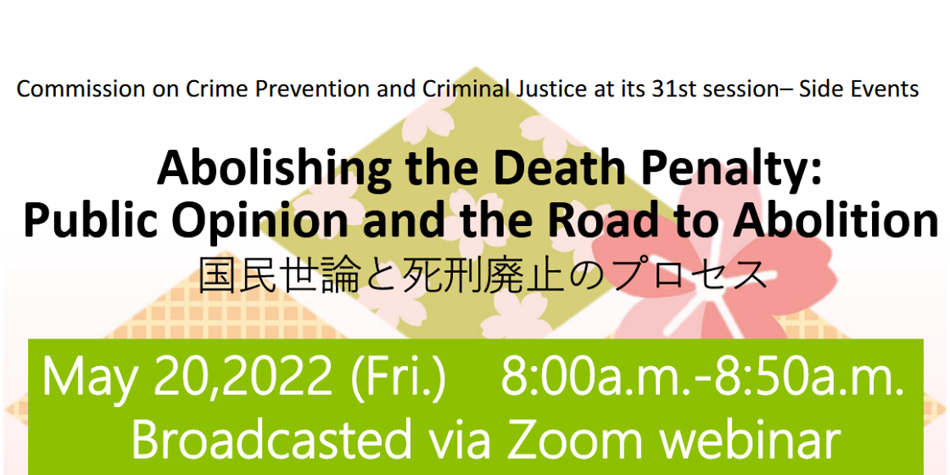
Article(s)
Public opinion supportive of the abolition
By Sarah Saint-Sorny, on 10 June 2022
The 31st Session of the Commission on Crime Prevention and Criminal Justice of the ODC took place in Vienna from the 16th to the 20th of May 2022. At this occasion, the Japan Federation of Bar Associations organized a side-event: “Abolishing the Death Penalty: Public Opinion and the Road to Abolition”, which was held online […]
2022
France
Japan
Public Opinion
United States
Article(s)
Japan executions “a step backward for Asia”
on 30 July 2010
Activists in Japan and elsewhere have criticised Justice Minister Keiko Chiba for ordering two men to be hanged in Tokyo on July 28 despite her earlier abolitionist statements.
2010
Japan
Moratorium
Public Opinion
Taiwan
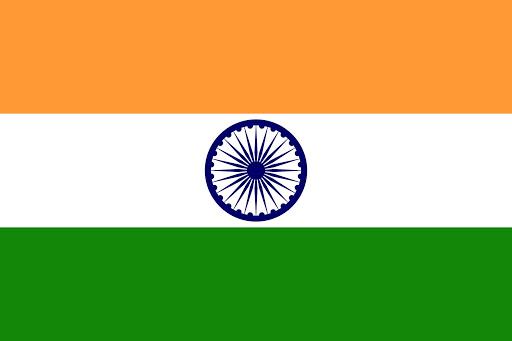
Article(s)
Punishing Sex Crimes: The Evolution of the Death Penalty in India
By Hédia Zaalouni, on 21 April 2020
The Death Penalty in India: Annual Statistics, an annual report published in January 2020 by Project 39A, details the application of the death penalty in India during the year 2019. It also describes developments in criminal justice and policy in the country.
2020
India
Document(s)
Politics of International Advocacy Against the Death Penalty: Governments as Anti–Death Penalty Crusaders
By Mai Sato, on 1 September 2022
2022
Academic report
More details See the document
Two-thirds of the countries worldwide have moved away from the death penalty in law or in practice, with global and regional organisations as well as individual governments working towards universal abolition. This article critically examines the narratives of these abolitionist governments that have abolished the death penalty in their country and have adopted the role of ‘moral crusaders’ (Becker 1963) in pursuit of global abolition. In 2018, the Australian Government, while being surrounded by retentionist states in Asia, joined the anti–death penalty enterprise along with the European Union, the United Kingdom and Norway. Using the concepts of ‘moral crusader’ (Becker 1963) and ‘performativity’ (Butler 1993), this article argues that advocacy must be acted on repeatedly for governments to be anti–death penalty advocates. Otherwise, these government efforts serve political ends in appearance but are simply a self-serving form of advocacy in practice.
This article was first published in Crime Justice Journal: https://www.crimejusticejournal.com/issue/view/119
- Document type Academic report
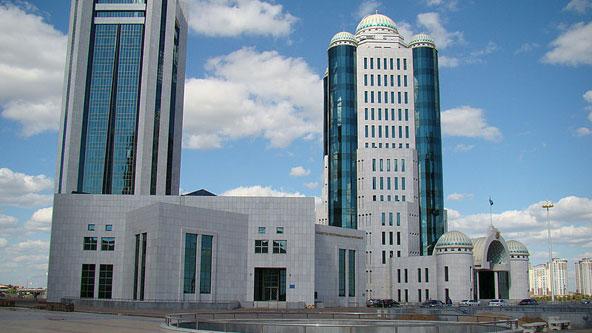
Article(s)
Kazakhstan Penal Code reform runs counter to abolitionist trend
By Anne Souléliac (Paris Bar), on 22 July 2014
The new Kazakh Penal Code provides for an increase in the number of capital crimes, even though Kazakhstan has been moving away from the death penalty for years and has a stated policy of meeting international standards.
2014
Kazakhstan
Kazakhstan
Terrorism

Article(s)
French youth event emboldens next abolitionist generation
By Bronwyn Dudley, on 22 October 2014
The testimony of an exonerated death row prisoners helped international students overcome initial awkwardness and launch into passionate debates at the invitation of Paris-based organisations on World Day Against the Death Penalty.
2014
France
Iran (Islamic Republic of)
Morocco
United States

Article(s)
Asia develops into hub of abolitionist dialogue
By Emile Carreau, on 6 November 2014
World Coalition member, Community of Sant’Egidio, has organised anti-death penalty conferences in Japan and the Philippines, both of which were overwhelmingly attended. Further conferences in the region are set to continue.
2014
Cambodia
India
Indonesia
Japan
Lao People's Democratic Republic
Philippines
Sri Lanka
Viet Nam
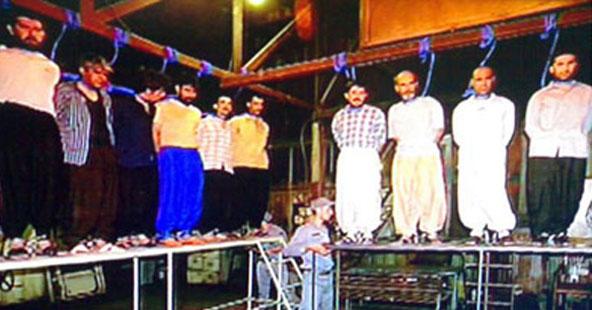
Article(s)
UN: freeze funding of Iran counter-narcotics efforts
By World Coalition Against the Death Penalty, on 17 December 2014
The World Coalition and its members call on UNODC to stop support to Iran as executions for drug trafficking surge.
2014
Drug Offenses
Iran (Islamic Republic of)

Article(s)
Applause for Pennsylvania’s death penalty moratorium
By Death Penalty Focus, "Free Mumia!" French Support Group, on 23 February 2015
Newly elected Governor Tom Wolf placed a moratorium on executions in Pennsylvania on 13 February until concerns about the fairness of the state’s death penalty system are addressed.
2015
Moratorium
United States

Article(s)
Sudan Repeals Capital Punishment for Homosexuality
By Louis Linel, on 31 July 2020
Sudan repealed the death penalty for homosexuality and apostasy
2020
Sudan
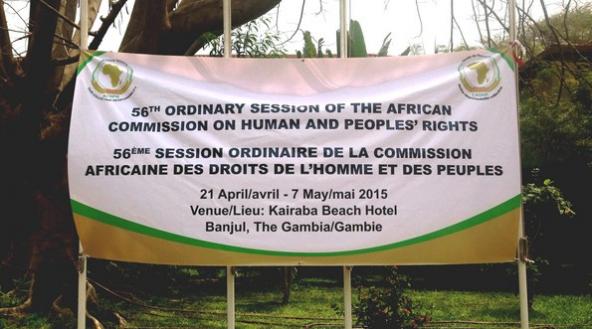
Article(s)
African Commission adopts draft Protocol on abolition
By Maria Donatelli, on 24 April 2015
At its 56th ordinary session, the African Commission on Human and Peoples Rights (ACHPR) put the abolition of the death penalty at the heart of its debates and adopted a draft regional treaty to help African Union member states move away from capital punishment.
2015
Member(s)
Mouvance des Abolitionnistes du Congo Brazzaville
on 30 April 2020
Mandate and Objectives: – Promote fundamental human rights : LIFE , EDUCATION, ACCESS TO WATER AND ELECTRICITY – Making human rights in daily lives – Fighting for universal abolition of the death penalty, starting in Congo Brazzaville by a national moratorium Types of action: – Exhibitions and screenings – Lectures, discussion and citizen petition, Sit-in […]
2020
Congo
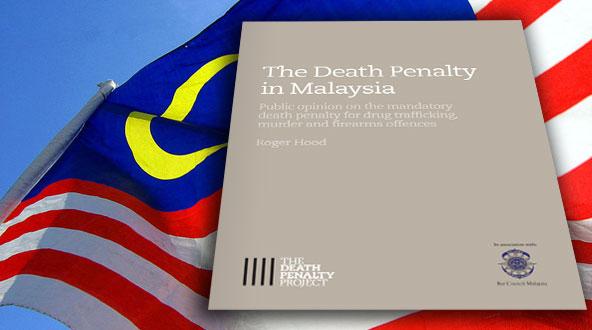
Article(s)
Malaysian popular support for mandatory death penalty overstated
By Thomas Hubert, on 10 July 2013
A detailed opinion survey commissioned by the Death Penalty Project in Malaysia found that while most people initially respond supportively when asked about mandatory death sentences, their opinion changes when confronted with practical cases and additional information.
2013
Malaysia
Public Opinion
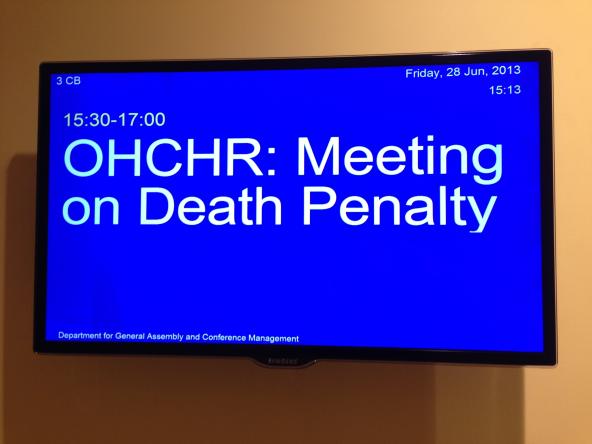
Article(s)
United Nations panel hears from innocent sentenced to death
By Maria Donatelli, on 4 July 2013
World Coalition members and a man who spent 18 years on death row for murders he did not commit joined UN Secretary General Ban Ki-Moon for a debate on capital punishment.
2013
Innocence
United States
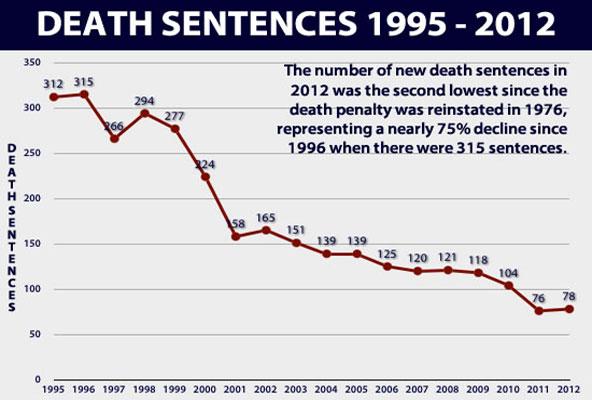
Article(s)
American death penalty area shrank further in 2012
By Thomas Hubert, on 20 December 2012
Only nine US states carried out executions this year, the lowest number in 20 years, according to a new report released by the independent organisation Death Penalty Information Center (DPIC).
2012
United States
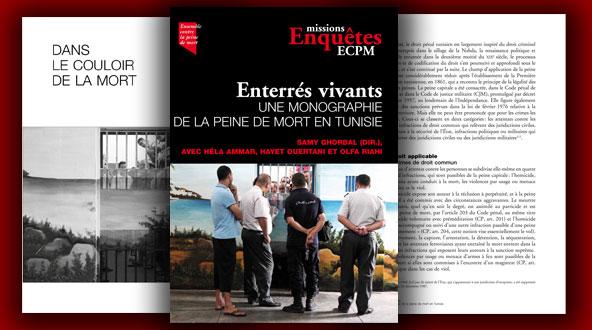
Article(s)
Inside Tunisia’s death row
By Delphine Judith, on 4 June 2013
Following the launch of the investigative report Buried alive: a study of the death penalty in Tunisia is launched, ECPM’s Middle East and North Africa officer Nicolas Bray presents the research carried out in December 2012.
2013
Death Row Conditions
Tunisia
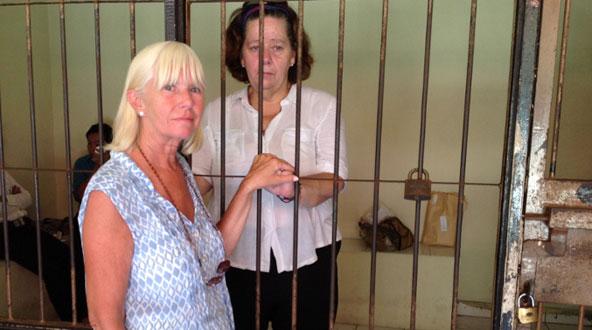
Article(s)
Briton’s death sentence puts Indonesians at risk
By KontraS, on 31 January 2013
The World Coalition’s Indonesian member organization KontraS has raised the international consequences of Lindsay Sandiford’s high-profile capital case in an opinion article published by the Jakarta Globe newspaper, calling on the country to abolish the death penalty.
2013
Drug Offenses
Indonesia
Moratorium
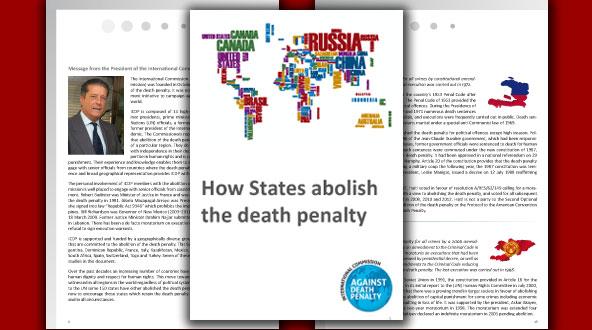
Article(s)
Study explores variety of national paths to abolition
By Thomas Hubert, on 3 May 2013
From courageous political leaders to traditional African values, the International Commission against the Death Penalty’s analysis of the factors leading to the abolition of capital punishment in 13 countries offers advice to retentionist countries.
2013
Cambodia
Haiti
Mongolia
Norway
Public Opinion
Rwanda
Senegal
South Africa
United States
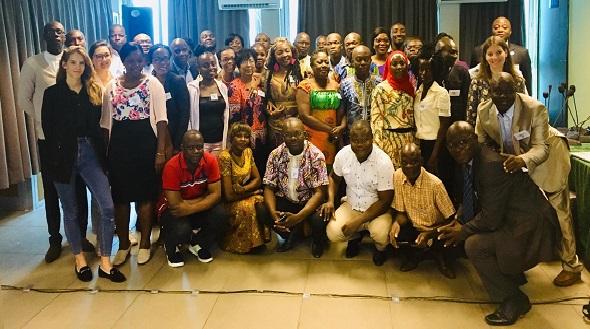
Article(s)
A Training on Advocacy for the Abolition of the Death Penalty in Sub-Saharan Africa
By Abdoul Razak Ahmadou Youssoufou, on 29 July 2019
The World Coalition Against the Death Penalty in partnership with FIACAT, and their local members ACAT Cameroon and Droits et Paix (Rights and Peace), organized a continental training course in July on advocacy for the abolition of the death penalty in sub-Saharan Africa in Douala, Cameroon. This training brought together abolitionists and experts from 23 African countries.
2019
Cameroon

Article(s)
Statement on the occasion of the adoption of the upr report of Lebanon
By Ensemble contre la peine de mort (ECPM), on 2 August 2021
We welcome Lebanon’s position in accepting some of the recommendations on strengthening the justice sector and improving strengthening the justice sector and those aimed at improving the conditions of detention, including the fight against acts of torture and ill-treatment.
2021
Lebanon
Moratorium

Article(s)
Community of Sant’Egidio Calls for Universal Abolition with Cities for Life, Cities Against the Death Penalty
By Louis Linel, on 8 December 2020
The discussion was chaired by Mario Marazitti, who stood in front of broadcasted live images of the light-draped Colosseum in Rome, Italy, displaying the slogan of this international key event, “No Justice Without Life”.
2020
Italy
Malaysia
Public Opinion
United States
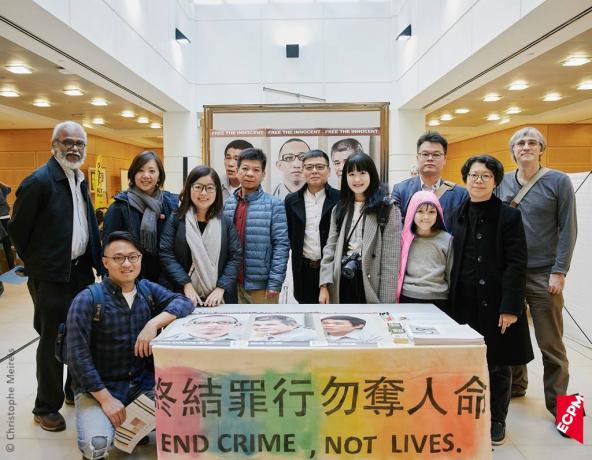
Article(s)
The Undercurrent: How we took part in the 7th World Congress Against the Death Penalty
By Wang Peiqi (Executive Secretary of the Taiwan Alliance to End the Death Penalty (TAEDP)), on 7 October 2019
As night fell, Xu Ziqiang and Zheng Xingze boarded a plane for Dubai together with a group of TAEDP members. Belgium was their final destination following this layover. This would be Ziqian’s and Xingze’s first time on European soil; they were preparing to take part in the World Congress Against the Death Penalty, held once every three years.
2019
Taiwan

Article(s)
Armenia and Angola Commit to Irreversible Abolition
By Aurelie Placais, on 4 October 2019
Following the United Nations Treaty Event in New York, two more states have committed to irreversible abolition of the death penalty by signing and ratifying the Second Optional Protocol to the International Covenant on Civil and Political Rights, aiming at the abolition of the death penalty (OP2-ICCPR). The Protocol was highlighted by the United Nations […]
2019
Angola
Armenia

Article(s)
Abolition of the death penalty must be an integral part of crime prevention programmes and criminal justice reforms
By Amnesty International, on 5 March 2021
As the Fourteenth United Nations Congress on Crime Prevention and Criminal Justice is about to begin in Kyoto, Japan, the undersigned organizations urge the Economic and Social Council (ECOSOC) and its subsidiary bodies, including the UN Office on Drugs and Crime (UNODC); and all UN member states, including the Congress host country Japan, to make […]
2021
Public Opinion

Article(s)
Joint Statement on Malaysia
By World Coalition Against the Death Penalty, on 10 October 2019
As we mark the 17th World Day against the Death Penalty, a year after the government of Malaysia announced the revision of the country’s laws to fully abolish the death penalty on 10 October, we, member organizations of the World Coalition Against the Death Penalty: • Positively note the support by Malaysia for the seventh […]
2019
Malaysia
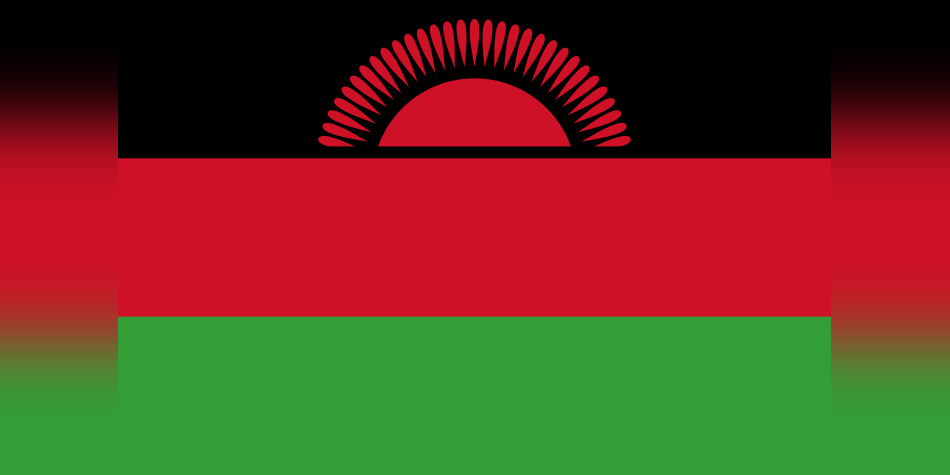
Article(s)
Malawi Supreme Court Reverses Abolition Decision
By World Coalition Against the Death Penalty, on 18 August 2022
On 30 April 2021, the World Coalition published the following article on the abolition of the death penalty in Malawi. Since its publication, the abolitionist status of the country has changed. This article has been updated below. —————————-
2022
Malawi
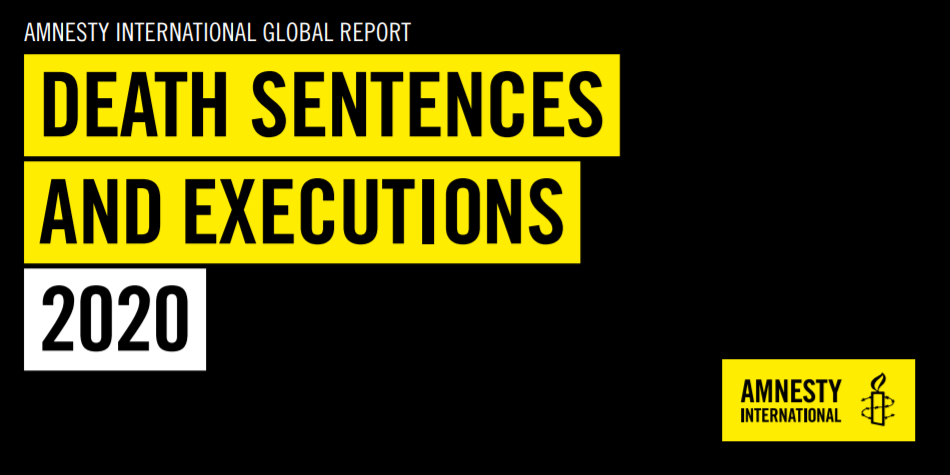
Article(s)
Editorial: Amnesty International releases annual report
By Amnesty International, on 27 May 2021
On 21 April, we published our annual report on the global use of the death penalty, which shows that in 2020 the world got one step closer to freeing itself from this cruel punishment.
2021
Cruel, Inhuman and Degrading Treatment and Punishment
Death Row Conditions
Public Opinion
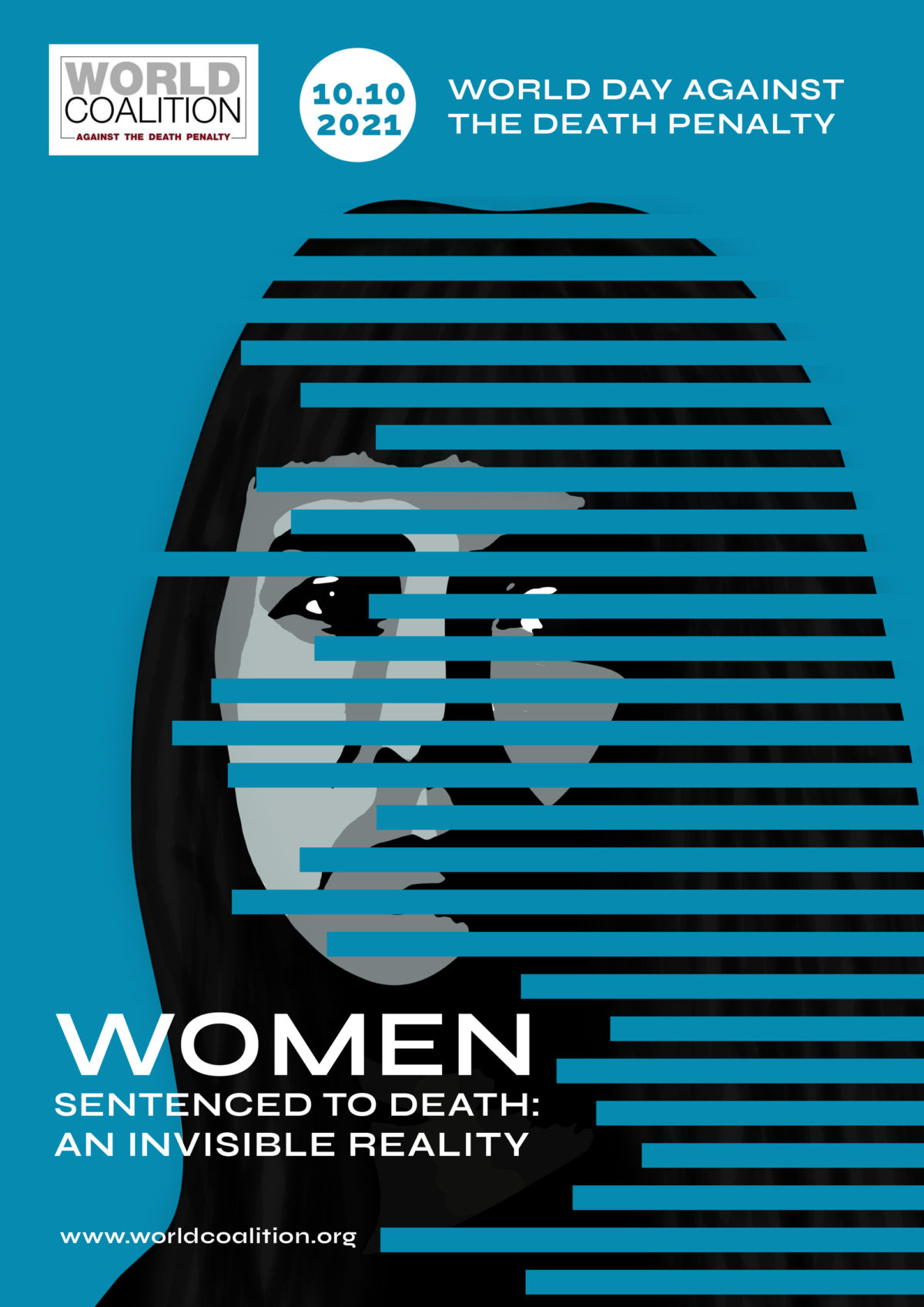
19th World Day Against the Death Penalty – Women and the death penalty, an invisible reality
on 10 June 2021
On 10 October 2021, the World Day will be dedicated to women who risk being sentenced to death, who have received a death sentence, who have been executed, and to those who have had their death sentences commuted, exonerated, or pardoned.
2021
Women
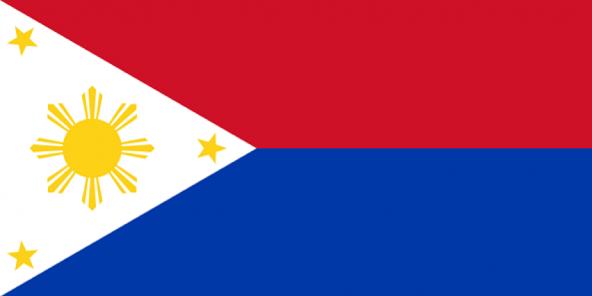
Article(s)
Philippines’ Major Setback as Abolitionist Leader in South-East Asia
By Dinda Royhan, on 23 January 2020
As a prominent leader in the campaign against death penalty in the South East Asia region for the last decade, Philippines’ reputation is endangered with President Duterte’s determination to reintroduce death penalty in the country. The country’s legislators are now on its second attempt to pass the bills.
2020
Philippines

Article(s)
Statement on the occasion of the adoption of the upr report of Mauritania
By Together against the death penalty, the Mauritanian Association for Human Rights, The Advocates for Human Rights and the World Coalition Against the Death Penalty, on 2 August 2021
Together against the death penalty, the Mauritanian Association for Human Rights, The Advocates for Human Rights and the World Coalition Against the Death Penalty welcome the adoption of the report of the Working Group on the Universal Periodic Review of Mauritania by the Human Rights Council.
2021
Mauritania
Moratorium
Article(s)
Kirghizstan definitively outlaws death penalty
on 18 February 2010
The Kirghiz parliament has ratified the UN Protocol on the abolition of the death penalty as demanded by the World Coalition and its partner States, months after several leaders called for its reinstatement.
2010
Kyrgyzstan
Article(s)
Activists from Burundi, Rwanda and DR Congo join forces
on 3 December 2008
The Great Lakes Regional Coalition Against the Death Penalty held its first meeting on November 17 in Kinshasa. Its lobbying efforts have accelerated Burundi’s legislative process.
2008
Burundi
Democratic Republic of the Congo
Moratorium
Rwanda
Article(s)
Flurry of educational events on World Day Against the Death Penalty
on 6 November 2009
An abolitionist wave of marches, cultural happenings, petition signings and educational events swept across the world for the 7th World Day on October 10.
2009
Australia
Clemency
Democratic Republic of the Congo
India
Indonesia
Innocence
Public Opinion
Taiwan
United States

Article(s)
Belarus ends more than one year without execution
By Daria Gribanova, on 14 April 2014
Despite an execution this month, Amnesty International’s latest annual report on the death penalty shows Belarus did not kill any prisoner last year, meaning Europe and Central Asia was execution-free for the first time since 2009. This achievement bolsters local abolitionists – despite the risks they face in their activism.
2014
Belarus
Belarus
Moratorium
Article(s)
Hank Skinner’s execution stayed amid international action
on 25 March 2010
The American death row inmate heard the news less than one hour before he was scheduled to die. From Huntsville to Paris, activists demand that new evidence be examined.
2010
Innocence
United States
Article(s)
World Coalition takes part in UN death penalty report launch
on 30 May 2010
The World Coalition held a side event to accompany the presentation of the 8th Quinquennial Report of the UN Secretary General on capital punishment in Vienna on May 19.
2010
Death Row Conditions
Innocence
Juveniles
Legal Representation

Article(s)
‘Sakineh’ campaign to culminate in worldwide protests
on 25 August 2010
What started as an effort to save an Iranian woman sentenced to death by stoning is turning into a global movement for human rights and against capital punishment.
2010
Cruel, Inhuman and Degrading Treatment and Punishment
Iran (Islamic Republic of)
Public Opinion
Article(s)
Translations in Chinese
By World Coalition Against the Death Penalty, on 21 January 2013
The World Coalition Against the Death Penalty’s office in Paris, France, is currently calling for translation contributions in Chinese.
The objective is to award contracts for translation services for the publications of the World Coalition Against the Death Penalty for 30 months (mid 2013 – mid 2015).
2013
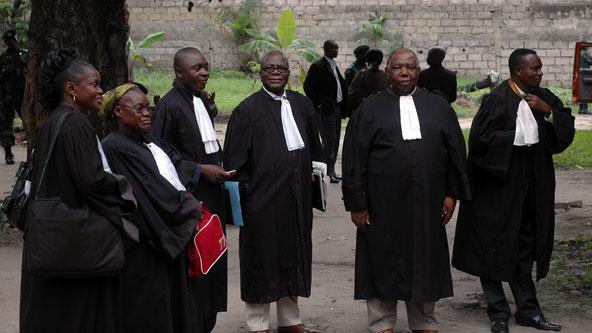
Article(s)
New defense manual to help lawyers in capital cases worldwide
By Thomas Hubert, on 29 May 2013
The World Coalition, together with Death Penalty Worldwide and the law firm of Fredrikson & Byron P.A., has launched the English and French editions of a manual compiling guidelines for defense lawyers whose clients face the death penalty at the 5th World Congress Against the Death Penalty.
2013
Legal Representation
Jobs
USA AND THE GREATER CARIBBEAN (UGC)
on 19 September 2024
Available grants are indicated below, with the specific target countries and the specific maximum amounts for each Worldwide Grant Grant UGC 1 Suriname Grant UGC 2 USA How to apply? Worldwide Grant 8 grants of maximum 1,000 EUR each on data collection gathering on intersectional discrimination faced by women and/or LGBTQIA+ people sentenced to death. […]
2024
Jobs
SOUTH ASIA AND THE MIDDLE EAST (SAME)
on 19 September 2024
Available grants are indicated below, with the specific target countries and the specific maximum amounts for each Worldwide Grant Grant SAME 1 All South Asia and Middle East countries Grant SAME 2 Target country: Jordan How to apply? Worldwide Grant 8 grants of maximum 1,000 EUR each on data collection gathering on intersectional discrimination faced […]
Jobs
ASIA PACIFIC
on 19 September 2024
Available grants are indicated below, with the specific target countries and the specific maximum amounts for each Worldwide Grant Grant Asia 1 All Asia Pacific countries Grant Asia 2 All Asia Pacific countries Grant Asia 3 All Asia Pacific countries Grant Asia 4 Bangladesh Grant Asia 5 Fiji, Papua New Guinea, Samoa Grant Asia 6 […]
Jobs
AFRICA
on 19 September 2024
Available grants are indicated below, with the specific target countries and the specific maximum amounts for each Worldwide Grant Grant Africa 1 Burkina Faso, Burundi, Central African Republic, Congo, Ghana, Sierra Leone, Zambia Grant Africa 2 Cameroon and DRC Grant Africa 3 Kenya Grant Africa 4 Kenya Grant Africa 5 Target countries: Kenya, Nigeria, Uganda […]
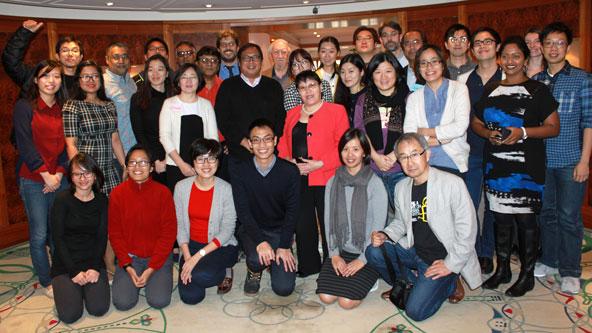
Article(s)
ADPAN network strengthens abolitionists across Asia
By Aurélie Plaçais (in Taipei, Taiwan), on 9 December 2014
The Anti-Death Penalty Asia Network, a coalition hosted by Amnesty International in London since 2006, has become an independent organisation registered in Malaysia and held its first AGM in Taipei, Taiwan on 4-5 December.
2014
China
Japan
Malaysia
Mongolia
Public Opinion
Republic of Korea
Taiwan
Taiwan
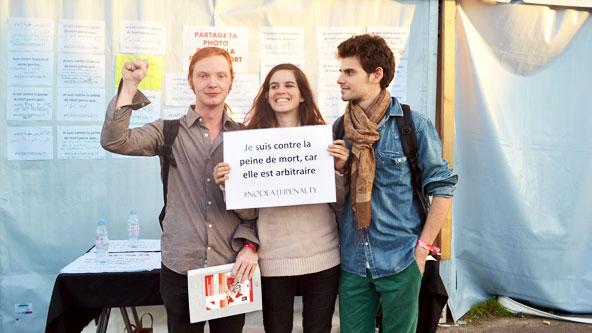
Article(s)
ECPM takes social media campaign to the fair ground
By Bronwyn Dudley, on 16 September 2014
World Coalition member organisation Ensemble contre la peine de mort (ECPM) was at September’s Fête de l’Humanité in Paris to spread awareness of the 12th World Day Against the Death Penalty on October 10.
2014
France
Intellectual Disability
Mental Illness
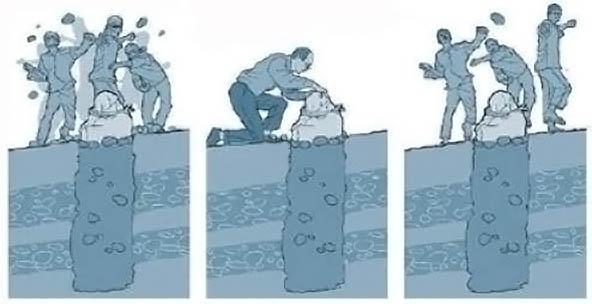
Article(s)
World Coalition members share knowledge on UN advocacy
By Asil Abuassba (The Advocates for Human Rights), on 19 February 2015
Asil Abuassba, a Palestinian intern with World Coalition member organisation The Advocates for Human Rights, attended a training session to help global activists submit reports on the death penalty situation in their countries to UN bodies.
2015
Cruel, Inhuman and Degrading Treatment and Punishment
Death Row Conditions
Fair Trial
Innocence
Intellectual Disability
Juveniles
Mental Illness
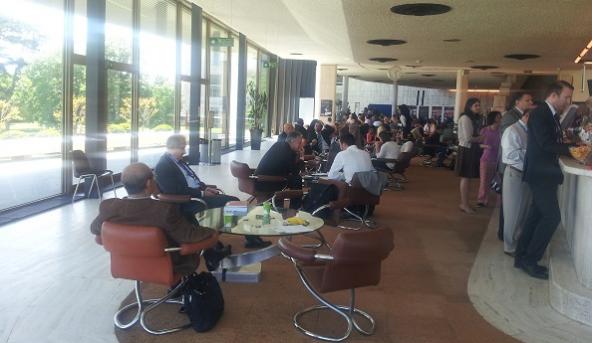
Article(s)
Abolitionist NGOs lobby to educate UN member states in Geneva
By Aurélie Plaçais, on 22 April 2015
Several World Coalition members carried out intense advocacy activities during and after the March session of the Human Rights Council to prepare for the coming UPR session, during which Liberia, Malawi and the USA will be examined.
2015

Member(s)
The Advocates for Human Rights
on 30 April 2020
The mission of The Advocates for Human Rights is to implement international human rights standards in order to promote civil society and reinforce the rule of law. By involving volunteers in research, education, and advocacy, The Advocates build broad constituencies in the United States and select global communities. In 1991, The Advocates adopted a formal […]
2020
United States

Member(s)
Comitato Paul Rougeau
on 30 April 2020
Paul Rougeau was sentenced to death in Texas for the murder of an off-duty policeman. He always maintained he was innocent. In 1992, after he had spent 15 years on death row, the Italian newspaper Il Manifesto printed a letter by Paul Rougeau on its front page. A group of Italian citizens then decided to […]
Italy
Page(s)
Become a member
on 22 June 2020
Only legal entities can join the World Coalition Against the Death Penalty In accordance with article 5.1. of its Bylaws, the World Coalition welcomes organizations that share the aim of the universal abolition of the death penalty. What the World Coalition offers its members What the World Coalition does not offer its members How members […]
2020
Page(s)
Life of the Network
on 22 June 2020
Abolitionists around the world are mobilizing to end the death penalty. World Day, World Congress, important events for the life of the World Coalition such as the steering committees, but also meetings, events and actions carried out by our members around the world: do not miss any event related to the fight against the death […]
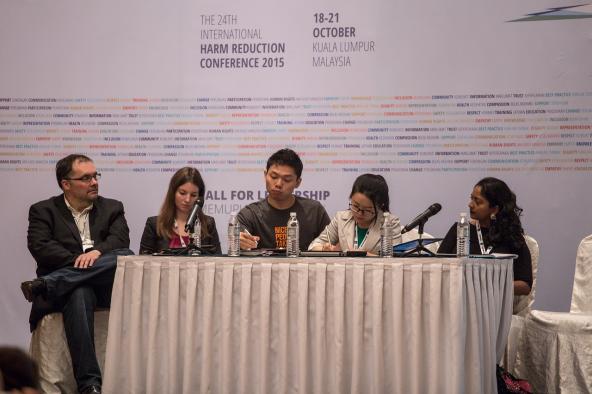
Article(s)
The death penalty for drugs must go, it has no place in a civilised society
By Aurélie Plaçais, on 21 October 2015
Those were the words of Anand Grover, former UN Special Rapporteur on the right to health during the opening ceremony of Harm Reduction International’s 24th conference in Kuala Lumpur, Malaysia.
2015
China
Drug Offenses
India
Indonesia
Malaysia
Article(s)
A World Without the Death Penalty – IX Congress of the Ministers of Justice
By Federica Merenda, on 29 February 2016
On 22 February 2016, the representatives of more than twenty countries gathered in Rome for the 9th International Congress of the Ministers of Justice « A World without the death penalty », organized by the Community of Sant’Egidio and hosted by the Italian Chamber of Deputies. Burundi, Cambodia, Central African Republic, Congo, El Salvador, Guinea Conakry, Cȏte d’Ivoire, Mali, Mongolia, Rwanda, Somalia, Sri Lanka, South Africa, Timor-Leste, Togo, Uganda, Viet Nam, Zimbabwe are the countries who joined Italy in the last edition of this annual conference.
2016

Article(s)
Closing ceremony of the project « My pencil for abolition » at the French Ministry of foreign affairs
By Marion Gauer, on 27 May 2016
On May 23rd, 2016, the closing ceremony of the project “My pencil for abolition” took place at the French Ministry of Foreign Affairs. This project was organized by the team of “Educating and Raising Awareness on Abolition” in the association Together Against the Death Penalty (ECPM): it consisted in involving a few middle and high school’s classes, from Lorraine, Belfort and the Parisian region, in the elaboration of articles and cartoons in order to create a magazine committed to the abolition of the death penalty, known as the Abolition Mag.
2016
Public Opinion
Article(s)
Web-Editor
By World Coalition Against the Death Penalty, on 17 October 2016
The World Coalition Against the Death Penalty is recruiting a Web-editor for its website.
2016
Article(s)
Web-Editor
By World Coalition Against the Death Penalty, on 9 October 2018
The World Coalition Against the Death Penalty is recruiting a Web-editor/Editorial Webmaster for its website.
2018
Document(s)
Data Mapping: Women on Death Row
By World Coalition against the Death Penalty , on 1 August 2023
2023
NGO report
Gender
frMore details Download [ pdf - 813 Ko ]
In 2021, the 19th edition of the World Day Against the Death Penalty (“World Day” on October 10) was dedicated to the invisible reality of women on death row, paving the way for new data on the issue of women sentenced to death. Many members of the World Coalition Against the Death Penalty (“World Coalition”), in preparation for 10 October, conducted research to document the situations of women facing the death penalty around the world. To systematize the information collected and have a global understanding of women sentenced to death, the World Coalition conducted a data systematization exercise.
This short report presents the main conclusions of this country exercise. These findings are a compilation of existing data available to the World Coalition Against the Death Penalty and its members organization up to December 2022.
- Document type NGO report
- Themes list Gender
- Available languages Cartographie de données : les femmes dans le couloir de la mort
Document(s)
Moving away from the death penalty
By Office of the High Commissioner for Human Rights (OHCHR) , on 1 January 2015
2015
International law - United Nations
More details See the document
The present publication provides an extensive review of global trends in death penalty matters, a summary of the applicable international legal standards, and the current status of legislative reform related to the death penalty in South-East Asia. As a product of the OHCHR Regional Office for South-East Asia, this publication is intended to be a resource for further discussions in the region toward the abolition of the death penalty.
- Document type International law - United Nations
- Themes list Trend Towards Abolition,
Document(s)
THE RACIAL GEOGRAPHY OF THE FEDERAL DEATH PENALTY
By Robert J. Smith / Ben Cohen / Washington Law Review, on 1 January 2010
2010
Article
United States
More details See the document
Scholars have devoted substantial attention to both the overrepresentation of black defendants on federal death row and the disproportionate number of federal defendants charged capitally for the murder of white victims. This attention has not explained (much less resolved) these disquieting racial disparities. Little research has addressed the unusual geography of the federal death penalty, in which a small number of jurisdictions are responsible for the vast majority of federal death sentences. By addressing the unique geography, we identify a possible explanation for the racial distortions in the federal death penalty: that federal death sentences are sought disproportionately where the expansion of the venire from the county to the district level has a dramatic demographic impact on the racial make-up of the jury. This inquiry demonstrates that the conversation concerning who should make up the jury of twelve neighbors and peers—a discussion begun well before the founding of our Constitution—continues to have relevance today. Louisiana, Missouri, Virginia and Maryland referred to.
- Document type Article
- Countries list United States
- Themes list Networks,
Document(s)
Pathways to abolition
By Death Penalty Worldwide / Cornell Law School, on 1 January 2016
2016
Academic report
More details See the document
This report documents the processes by which 14 jurisdictions abolished the death penalty in law. The conclusions attempt to identify patterns and draw conclusions in the hope that they will provide ideas, insights and inspiration to countries that either already are on their path to abolition or yet have to embark on it.
- Document type Academic report
- Themes list Trend Towards Abolition, Country/Regional profiles,
Document(s)
Defending Women and Transgender Persons Facing Extreme Sentences: A Practical Guide
on 14 January 2022
2022
Legal Representation
Legal Representation
Women
frMore details See the document
Written by a team including experts in the fields of capital defense, gender rights, gender-sensitive mitigation and the rights of transgender persons, the guide includes sections on gender-based violence, women’s mental health, prison conditions, discrimination in the legal system, working with the media, and how to build a gender-sensitive team. It also includes a step-by-step gender-sensitive interview protocol that builds on resources developed by the anti-violence community and is tailored to the needs of defense teams.
- Document type Legal Representation
- Themes list Legal Representation / Women
- Available languages Défendre les femmes et les personnes transgenres confrontées à des peines extrêmes
Document(s)
Death by Design: Part 2
By The Wren Collective, on 23 January 2024
2024
NGO report
Legal Representation
United States
More details See the document
Published in December 2023.
In “Death by Design” Parts 1 and 2, Wren investigated the state of court-appointed capital representation in Harris County—the death penalty capital of the world. The second report examines why that poor representation has thrived, and the ways that the judges overseeing those cases have enabled it to continue that way.
Wren recommends a total overhaul to the system of capital representation for poor defendants in Harris County, with either the public defender absorbing those cases or the judges establishing a new, freestanding capital public defender that is independent from judicial oversight.
- Document type NGO report
- Countries list United States
- Themes list Legal Representation
Document(s)
Prison Conditions in Jamaica
on 19 April 2011
2011
NGO report
Death Row Conditions
Jamaica
More details Download [ pdf - 396 Ko ]
In criminal justice matters, Jamaica has been rightly praised for its de-facto abolitionist
stance on the death penalty: nobody has been executed on the island since 1988.
However, the alternative to death is imprisonment. For many years, NGOs, the UN
Human Rights Committee, the Inter-American Commission on Human Rights, and
various independent and internal reports have expressed serious concern about the
conditions in which Jamaica detains its prisoners.
- Document type NGO report
- Countries list Jamaica
- Themes list Death Row Conditions
Document(s)
Educational guide: teaching abolition
By World Coalition against the death penalty , on 10 October 2011
2011
Campaigning
Trend Towards Abolition
frMore details See the document
In 2009, the World Day Against the Death Penalty was
dedicated to the theme “Teaching Abolition”. The World
Coalition developed a teaching guide to be used in
schools throughout the world
- Document type Campaigning
- Themes list Trend Towards Abolition
- Available languages Guide pédagogique: éduquer à l'abolition
Document(s)
Investigating Attitudes to the Death Penalty in Indonesia Part One – Opinion Formers: An Appetite for Change
By Carolyn Hoyle - The Death Penalty Project, in partnership with LBH Masyarakat and the University of Indonesia, on 28 June 2021
2021
NGO report
Drug Offenses
Indonesia
Public Opinion
More details See the document
In 2019-20, The Death Penalty Project, in partnership with LBH Masyarakat and the University of Indonesia, commissioned Professor Carolyn Hoyle, of The Death Penalty Research Unit at the University of Oxford to conduct research investigating attitudes towards the death penalty in Indonesia.
The findings have been presented in a two-part report; the first details the findings of a nuanced public survey and the second details the findings of interviews conducted with opinion formers.
- Document type NGO report
- Countries list Indonesia
- Themes list Drug Offenses / Public Opinion
Document(s)
Leaflet – World Day 2023
on 12 June 2023
2023
Campaigning
World Coalition
arfrMore details Download [ pdf - 1095 Ko ]
Leaflet for the 21th World Day against the death penalty (2023), on torture and the death penalty.
- Document type Campaigning / World Coalition
- Available languages كتيب - اليوم العالمي 2023Brochure - Journée mondiale 2023
Document(s)
Explaining the Invidious: How Race Influences Capital Punishment in America
By Sheri Lynn Johnson, James and Mark Flanagan, Cornell Law School, on 1 September 2022
2022
Academic report
United States
More details See the document
This article primarily focuses on how racial bias creates nearly ubiquitous racial disparities in the imposition of the death penalty; it does so both to amass further reasons McCleskey was wrongly decided, and to point the way forward. Part I provides the necessary foundation by summarizing the history of race and the death penalty in the United States, with a focus on the Supreme Court’s treatment of racial discrimination claims in capital sentencing. Part II, the heart of this Article, examines the multiple psychological mechanisms that create racially biased decision making in capital cases. Understanding those mechanisms further undercuts the Supreme Court’s reasoning in McCleskey and argues for overturning the holding. However, recognizing the reluctance with which today’s Court would view overturning McCleskey, Part III considers whether and how alternative, case-specific uses of the data described in Part II might ameliorate the influence of racial bias in capital sentencing.
- Document type Academic report
- Countries list United States
Document(s)
22nd World Day Against the Death Penalty – FACTS AND FIGURES
By World coalition against the death penalty, on 8 July 2024
2024
Campaigning
World Coalition
frMore details Download [ pdf - 206 Ko ]
- Document type Campaigning / World Coalition
- Available languages 22e Journée mondiale contre la peine de mort - Faits et chiffres
Document(s)
A/HRC/RES/54/35 Resolution adopted by the Human Rights Council
on 7 February 2024
2024
International law - United Nations
aresfrruzh-hantMore details See the document
- Document type International law - United Nations
- Available languages A/HRC/RES/54/35قرار اعتمده مجلس حقوق اإلنسانA/HRC/RES/54/35 Resolución aprobada por el Consejo de Derechos HumanosA/HRC/RES/54/35 Résolution adoptée par le Conseil des droits de l’hommeA/HRC/RES/54/35 Резолюция, принятая Советом по правам человекаA/HRC/RES/54/35 人权理事会 通过的决议
Document(s)
Impact of the World Coalition’s Strategic Plan 2018–2022
By World Coalition Agianst the Death Penalty, on 22 August 2023
2023
World Coalition
Trend Towards Abolition
frMore details Download [ pdf - 265 Ko ]
- Document type World Coalition
- Themes list Trend Towards Abolition
- Available languages Impact du Plan stratégique 2018-2022 de la Coalition Mondiale
Document(s)
Ambivalent Abolitionism in the 1920s: New South Wales, Australia
By Carolyn Strange, on 1 September 2022
2022
Academic report
Australia
More details See the document
In the former penal colony of New South Wales (NSW), a Labor government attempted what its counterpart in Queensland had achieved in 1922: the abolition of the death penalty. Although NSW’s unelected Legislative Council scuttled Labor’s 1925 bill, the party’s prevarication over capital punishment and the government’s poor management of the campaign thwarted abolition for a further three decades. However, NSW’s failure must be analysed in light of ambivalent abolitionism that prevailed in Britain and the US in the postwar decade. In this wider context, Queensland, rather than NSW, was the abolitionist outlier.
This article was first published in Crime Justice Journal: https://www.crimejusticejournal.com/issue/view/119
- Document type Academic report
- Countries list Australia
Document(s)
Lebanon – Committee on the Elimination of Discrimination Against Women – Death Penalty
on 12 January 2022
2022
NGO report
World Coalition
Lebanon
Women
More details Download [ pdf - 1599 Ko ]
This report addresses Lebanon’s compliance with human rights obligations under the Convention on the Elimination of All Forms of Discrimination Against Women regarding its use of the death penalty.
Lebanon has not abolished the death penalty or established a de jure moratorium on the death penalty. The legal system does not protect women in conflict with the law from discrimination on the basis of sex or gender. Nor does it limit capital offenses to the “most serious” crimes.
Women migrant domestic workers appear to be at an elevated risk of being sentenced to death. Indeed, all three women known to be on death row in Lebanon are Sri Lankan migrant domestic workers. Such women face heightened obstacles to realizing their right to a fair trial. Moreover, there is no evidence that sentencing authorities take into account a woman’s history of abuse when determining an appropriate sentence. Finally, women under sentence of death face degrading conditions of detention.
- Document type NGO report / World Coalition
- Countries list Lebanon
- Themes list Women
Document(s)
Death Penalty in India – Annual Statistics Report 2021
By Project 39A, on 4 February 2022
2022
Academic report
India
More details See the document
Project 39A at the National Law University, Delhi published the sixth edition of the Death Penalty in India: Annual Statistics Report which provides an annual update on the use of the death penalty in India along with legislative and international developments on the issue. As on 31st December 2021, there were 488 prisoners on death row across India (a steep rise of nearly 21% from 2020), with Uttar Pradesh having the highest number at 86. This is the highest the death row population has been since 2004 as per the data from the Prison Statistics published by the National Crime Records Bureau.
- Document type Academic report
- Countries list India
Document(s)
The Death Penalty For Drug Offences: Global Overview 2023
By Harm Reduction International, on 28 March 2024
2024
NGO report
Drug Offenses
More details See the document
Published in 2023.
At the end of 2023, 34 countries retained the death for drug offences. In July 2023 Pakistan took the landmark decision to remove the death penalty from the list of punishments that can be imposed for certain violations of its Control of Narcotics Substances Act. This year also saw notable progress in Malaysia, which abolished the mandatory death penalty for all offences, including drug-related ones. This reform may impact the lives of over 700 people on death row for drug offences and bring the country one step closer to total abolition of capital punishment. In stark contrast to these positive developments is the record-high number of drug-related executions in 2023 at least 467. Of those executed, at least 59 people belonged to ethnic minority groups (in Iran and in Singapore), 13 individuals were foreign nationals, and six were women. These figures confirm that these groups are uniquely vulnerable to capital punishment as a tool of drug control. Despite not accounting for the dozens, if not hundreds, of executions believed to have taken place in China, Vietnam, and North Korea, the 467 executions that took place in 2023 represent a 44% increase from 2022.
- Document type NGO report
- Themes list Drug Offenses
Document(s)
Briefing Paper on the death penalty in Middle East & North Africa
By Penal Reform International, on 8 September 2020
2020
Academic report
More details See the document
NGO coalition report submitted to the Office of the United Nations High Commissioner on Human Rights
- Document type Academic report
Document(s)
Georgian : უვადო თავისუფლების აღკვეთისა და გრძელვადიანი სასჯელების გამოყენება და აღსრულება საქართველოში
By Penal Reform International / Tsira Chanturia / Maia Khasia / Jacqueline Macalesher, on 8 September 2020
NGO report
ruMore details See the document
საქართველოში ბოლო განაჩენი სიკვდილით დასჯის შესახებ აღსრულებულ იქნა სავარაუდოდ 1992/93 წლებში. სიკვდილით დასჯილთა შესახებ სტატისტიკურიინფორმაცია გამოთხოვილ იქნა სასჯელაღსრულების პრობაციისა და იურიდიული დახმარების სამინისტროს სასჯელაღსრულების დეპარტამენტიდან, თუმცა მიღებული პასუხის თანახმად, აღნიშნული ინფორმაცია ვერ იქნა მოძიებული
- Document type NGO report
- Themes list Trend Towards Abolition,
- Available languages Отмена смертной казни и альтернативные наказания на Южном Кавказе: Азербайджан, Армения, Грузия
Document(s)
Middle East and North Africa: Algeria, Egypt, Jordan, Lebanon, Morocco and Tunisia
By Penal Reform International, on 1 January 2012
2012
NGO report
More details See the document
The aim of this research paper is to provide upto-date information about the laws and practices relating to the application of the death penalty. It includes an analysis of the alternative anctions to the death penalty (life and long-term imprisonment) and whether they reflect international human rights standards and norms.
- Document type NGO report
- Themes list Cruel, Inhuman and Degrading Treatment and Punishment, Death Row Phenomenon, Country/Regional profiles,
Document(s)
A Comparative Analysis of Capital Punishment: Statutes, Policies, Frequencies, and Public Attitudes the World Over
By Dagny Dlaskovich / Rita Simon / Lexington Books, on 1 January 2002
2002
Book
More details See the document
A Comparative Analysis of Capital Punishment provides a concise and detailed history of the death penalty. Incorporating and synthesizing public opinion data and empirical studies, Simon and Blaskovich’s work compares, across societies, the types of offenses punishable by death, the level of public support for the death penalty, the forms the penalty takes, and the categories of persons exempt from punishment.
- Document type Book
- Themes list Public opinion,
Document(s)
How the European Union Works: Your guide to the EU institutions
By European Union, on 1 January 2007
2007
Working with...
fresMore details See the document
The European Union (EU) is a family of democratic European countries working together to improve life for their citizens and to build a better world. The following chapters describe the Treaties, the EU institutions and the other bodies and agencies, explaining what each entity does and how they interact.
- Document type Working with...
- Themes list Networks,
- Available languages Comment fonctionne l'Union européenneEl Funcionamiento de la Unión Europea: Guía del Ciudadano sobre las Instituciones de la UE
Document(s)
Children of parents sentenced to death
By Helen F. Kearney / Quaker United Nations Office, on 1 January 2012
2012
NGO report
More details See the document
This paper will raise awareness of some of the issues facing the child. It will consider and elaborate on each of these issues in as much detail as the current literature permits.
- Document type NGO report
- Themes list Murder Victims' Families, Country/Regional profiles,
Document(s)
Death Penalty in the Palestinian Legal System A Legal review
By Maan Shihda Ideis / Independent Commission for Human Rights , on 1 January 2010
2010
NGO report
More details See the document
This study analyzes the Palestinian legislations in light of the UN procedures and criteria on the issuance, imposition or execution of death sentences. The study is divided into two main parts, each of which is dedicated to either the international or national legislation on death penalty. This part is divided into two main chapters. Chapter One addresses the substantive provisions on death penalty and Chapter Two is concerned with the procedural provisions. This classification is inline with the international efforts for the abolition of death penalty, particularly because the UN, in its capacity as the representative of the international community, has not banned the capital punishment but opted for the introduction of a number of legal actions for the States to consider when they include such penalty in their legislations, or when such sentences are issued by the courts or actually executed. Thus, the procedural and the substantive provisions are addressed separately in this study, both at the international and national levels.
- Document type NGO report
- Themes list International law,
Document(s)
Death Penalty in the Palestinian Legal System: A Legal Review
By Maan Shihda Ideis / Independent Commission for Human Rights , on 1 January 2010
International law - Regional body
arMore details See the document
ICHR carried out this review in order to assist the PNA in its attempts to join international community that did abolish death penalty from their legal system. In order for the PNA to ratify the various international conventions stipulating respect for the right to life and prohibits the execution of every human being. In this study, ICHR aims to define the practical steps that the PNA should take in order to abolish death penalty from the Palestinian legal system. According to Article (10) of the Basic Law of 2002, the human rights and fundamental freedoms shall be binding and respected by the PNA which shall, without delay, accede to the regional and international declarations and instruments that protect human rights, especially those international charters and resolutions that governing the right to life, the abolition of death penalty, and/or placing restrictions on the procedures of its execution.
- Document type International law - Regional body
- Themes list Networks,
- Available languages مراجعة قانونية لعقوبة الإعدام في سطيني
Document(s)
Protection of the Rights of Children of Parents Sentenced to Death or Exectued: An Expert Legal Analysis
By Quaker United Nations Office / Stephanie Farrior, on 1 January 2019
2019
NGO report
More details See the document
The QUNO’s report offers an updated review of differents elements of international law on the human rights of the child.
- Document type NGO report
- Themes list International law, World Coalition Against the Death Penalty,
Document(s)
Indonesian – Laporan Global Amnesty International : hukuman mati dan eksekusi 2023
on 29 May 2024
2024
NGO report
Trend Towards Abolition
More details Download [ pdf - 897 Ko ]
Pemantauan yang dilakukan oleh Amnesty Internasional terhadap hukuman mati secara global
mencatat terdapat 1.153 eksekusi hukuman mati pada tahun 2023. Angka tersebut menunjukkan
adanya peningkatan sebanyak 31% dari 883 eksekusi pada tahun 2022. Namun, ada penurunan
yang signifikan pada angka negara yang menerapkan hukuman mati. Dari 20 negara pada 2022
menjadi hanya 16 negara di 2023
- Document type NGO report
- Themes list Trend Towards Abolition
Document(s)
Arbitrary and Capricious: Examining Racial Disparities in Harris County’s Pursuit of Death Sentences
By Texas Defender Service, on 24 April 2024
2024
NGO report
United States
More details See the document
Published on February 2024.
Texas has executed more people than any other state. However, out of the 254 counties in Texas, 136 have never sent an individual to death row. Harris County—Texas’s largest county and home to the city of Houston—stands out as the “death penalty capital of the world.” Harris County has executed more people than any state in the United States except Texas3 and is responsible for a quarter of the 1,124 people who have been sent to Texas’s death row since 1973.
- Document type NGO report
- Countries list United States
Document(s)
Death Penalty in India: Annual Statistics Report 2023
By Project 39A, on 15 February 2024
2024
NGO report
India
More details See the document
Published in 2023.
This is the eighth edition of the Death Penalty in India: Annual Statistics Report. This annual publication presents changes in the death row population as well as political and legal developments in the administration of the death penalty in India each year. The statistics are compiled through a combination of data mining of court websites, media monitoring and Right to Information applications.
- Document type NGO report
- Countries list India
Document(s)
Death by Design: Part 1
By The Wren Collective , on 23 January 2024
2024
NGO report
Legal Representation
United States
More details See the document
Published in December 2023.
In “Death by Design” Parts 1 and 2, Wren investigated the state of court-appointed capital representation in Harris County—the death penalty capital of the world.The first report delves into the failings of the lawyers in capital cases.
Wren recommends a total overhaul to the system of capital representation for poor defendants in Harris County, with either the public defender absorbing those cases or the judges establishing a new, freestanding capital public defender that is independent from judicial oversight.
- Document type NGO report
- Countries list United States
- Themes list Legal Representation
Document(s)
Bloodshed and Lies: Mohammed bin Salman’s Kingdom of Executions
By Reprieve UK and European Saudi Organization for Human Rights, on 31 January 2023
2023
NGO report
Saudi Arabia
arMore details See the document
Saudi Arabia is a flagrant abuser of the right to life. Between 2010 and 2021, Saudi Arabia executed at least 1243 people, making it one of the most rampant executioners in the world. As of December 2022, the Saudi regime had executed at least a further 147 people in 2022, including 81 people in one day in a mass execution on 12 March 2022.
Saudi Arabia’s use of the death penalty has drastically increased since 2015. This escalation has taken place on the watch of Saudi Arabia’s King Salman, who acceded the throne on 23 January 2015, and his son, Crown Prince and Prime Minister Mohammed bin Salman. The annual rate of executions has almost doubled since King Salman and Mohammed bin Salman came to power in 2015. From 2010-2014 there was an average of 70.8 executions per year. From 2015-2022 there was an average of 129.5 executions per year – a rise of 82%. The six bloodiest years of executions in Saudi Arabia’s recent history have all occurred under the leadership of Mohammed bin Salman and King Salman (2015, 2016, 2017, 2018, 2019 and 2022).
- Document type NGO report
- Countries list Saudi Arabia
- Available languages سفك الدماء والأكاذيب: مملكة إعدام محمد بن سلمان
Document(s)
Testimonies tool – World Day 2022
By the World Coalition Against the Death Penalty, on 28 June 2022
2022
World Coalition
frMore details Download [ pdf - 764 Ko ]
The World Coalition and its members have collected testimonies of victims of torture in the death penalty. Confessions, death row phenomenon, moments before the execution, psychological torture of those not sentenced to death, methods of execution. Read the stories of these victims.
We thank all those who agreed to share their testimonies and their stories.
- Document type World Coalition
- Available languages Outil témoignages - Journée mondiale 2022
Document(s)
Report of the Secretary General: Question of the death penalty 2021 (A/HRC/48/29)
By Office of the High Commissioner for Human Rights (OHCHR), on 15 September 2021
2021
United Nations report
Public Opinion
More details See the document
The present report is submitted pursuant to decision 18/117 and resolution 42/24 of the Human Rights Council. The report focuses on consequences arising from the lack of transparency in the application and imposition of the death penalty on the enjoyment of human rights.
- Document type United Nations report
- Themes list Public Opinion
Document(s)
Death Penalty For Drug Offences: Global Overview 2021
on 21 March 2022
2022
NGO report
Drug Offenses
More details See the document
Harm Reduction International has monitored the use of the death penalty for drug offences worldwide since our first ground-breaking publication on this issue in 2007. This report, our eleventh on the subject, continues our work of providing regular updates on legislative, policy and practical developments related to the use of capital punishment for drug offences, a practice which is a clear violation of international law.
The Death Penalty for Drug Offences: Global Overview 2021 found that: 1) 35 countries still retain the death penalty for drug offences 2) At least 131 people were executed for drug offences in 2021 – a 336% increase from 2020. However, due to a severe lack of transparency, if not outright censorship, this is only a partial picture. This figure likely represents only a fraction of all drug-related executions carried out globally.
- Document type NGO report
- Themes list Drug Offenses
Document(s)
Broken Promises: How a History of Racial Violence and Bias Shaped Ohio’s Death Penalty
By Death Penalty Information Center , on 14 May 2024
2024
NGO report
Fair Trial
Innocence
Trend Towards Abolition
United States
More details See the document
In January 2024, Ohio lawmakers announced plans to expand the use of the death penalty to permit executions with nitrogen gas, as Alabama had just done a week earlier. But at the same time the Attorney General and the Ohio Prosecuting Attorneys Association are championing this legislation, a bipartisan group of state legislators has introduced a bill to abolish the death penalty based on “significant concerns on who is sentenced to death and how that sentence is carried out.” The competing narratives make it more important than ever for Ohioans to have a meaningful, accurate understanding of how capital punishment is being used, including whether the state has progressed beyond the mistakes of its past.
- Document type NGO report
- Countries list United States
- Themes list Fair Trial / Innocence / Trend Towards Abolition
Document(s)
Debunking the deterrence theory
By World coalition against the death penalty, on 9 July 2024
2024
Campaigning
World Coalition
frMore details Download [ pdf - 593 Ko ]
- Document type Campaigning / World Coalition
- Available languages La théorie de la dissuasion démystifiée
Document(s)
Deterrence and the Death Penalty Guide
By The Death Penalty Project, on 1 November 2022
2022
NGO report
Public Opinion
More details See the document
The most common justification for the retention of the death penalty among the minority of states that continue to sentence to death and execute individuals who are found guilty of committing certain serious offences is a belief that this punishment has a unique deterrent effect. The Death Penalty Project produced this resource on deterrence and the death penalty.
- Document type NGO report
- Themes list Public Opinion
Document(s)
Public Opinion and the Death Penalty Guide
By The Death Penalty Project, on 1 November 2022
NGO report
Public Opinion
More details See the document
When faced with calls to join the majority of states worldwide that have now abolished capital punishment, a key justification, typically relied upon by retentionist states, is that their citizens are not yet ready for abolition, and that political leaders must represent ‘the will of the people.’ The Death Penalty Project produced this resource on public opinion and the death penalty.
- Document type NGO report
- Themes list Public Opinion
Document(s)
Malawi – Committee on the Elimination of Discrimination Against Women – Death Penalty – January 2022
on 31 January 2022
2022
NGO report
World Coalition
Malawi
Women
More details Download [ pdf - 311 Ko ]
Detention conditions for women in Malawi are crowded, and women in prisons are not given adequate food and nutrition. Specifically, many prisons only serve people with one meal a day, often consisting of a maize meal (nsima) and peas or beans. Overcrowded conditions are a particular concern during the COVID-19 pandemic, when risk of transmission of the disease is high. Prison conditions in Malawi amount to inhuman and degrading treatment.
Women in death penalty proceedings in Malawi lack access to qualified legal representation. Defense advocates in Malawi who are assigned to capital cases often lack relevant experience. In at least one case, a lawyer failed to raise the complete defense of self-defense in representing a woman who killed her husband as a result of a long history of domestic abuse. Had the defense been raised, it is possible that the woman would not have been sentenced to death. Moreover, women from poor and marginalized communities are disproportionately affected by the death penalty because when they are accused of crimes, they are often unable to understand the charges against them because they are illiterate and cannot read the complaint against them. They are also unable to retain private counsel.
Women who face extensive gender-based violence are disproportionately affected by the death penalty in Malawi, including those who seek to protect themselves against their abusers. Long histories of gender-based violence can result in complex trauma and can exacerbate psycho-social or intellectual disabilities, yet sentencing courts fail to take these nefarious effects into account as factors in mitigation of a death sentence.
- Document type NGO report / World Coalition
- Countries list Malawi
- Themes list Women
Document(s)
The Use of the Death Penalty as a Bargaining Chip in Innocence Cases
By Claudia I. Salinas, California Western International Law Journal, on 1 February 2024
2024
Academic Article
United States
More details See the document
Published in 2023.
While 70% of the world’s countries have abolished the death penalty, also known as capital punishment, much of the United States continues to use it in its criminal legal proceedings.According to the Death Penalty Information Center, at least 190 people were exonerated prior to their fated execution date after being wrongly convicted and sentenced to death in the United States. There is no way to tell how many of the 1,562 people, who have been executed in the United States, were actually innocent. As there are wrongful convictions still happening today, it is no surprise that most countries consider the death penalty a human rights issue.
- Document type Academic Article
- Countries list United States
Document(s)
American Death Penalty Exceptionalism, Then and Now
By Jordan Steiker, California Western International Law Journal , on 1 February 2024
Academic Article
United States
More details See the document
Published in October 2023.
The most commonly observed fact of American capital punishment is its present outlier status: the United States (U.S.) is the only developed Western democracy that retains the death penalty, and it does so not simply as a matter of law, but as a matter of practice, conducting numerous executions every year. This “exceptionalism” with respect to the death penalty is noteworthy, but focusing on present-day American retention obscures many additional aspects of American death penalty exceptionalism. This Keynote will trace several ways in which the American death penalty was an outlier at its founding and throughout its subsequent history, as well as the varied aspects of its exceptionalism today. I will conclude by predicting that U.S. exceptionalism will soon come to an end–with an “exceptional” form of death penalty abolition, traceable to the distinctive path of the American death penalty
- Document type Academic Article
- Countries list United States
Document(s)
United States – Committee on the Elimination of Racial Discrimination – Death Penalty – May 2022
on 21 July 2022
2022
NGO report
United States
More details Download [ pdf - 703 Ko ]
1. The Committee last reviewed the United States’ compliance with the International Convention on the Elimination of All Forms of Racial Discrimination in 2014. Among the 2014 Concluding Observations are two recommendations relevant to this Report. 2. The Committee stated that it “remain[ed] concerned that members of racial and ethnic minorities, particularly African Americans, continue to be disproportionately arrested, incarcerated and subjected to harsher sentences, including life imprisonment without parole and the death penalty.” Among other things, the Committee encouraged “[a]mending laws and policies leading to racially disparate impacts in the criminal justice system … and implementing effective national strategies or plans of action aimed at eliminating structural discrimination.” The Committee specifically encouraged “[i]mposing a moratorium on the death penalty, at the federal level, with a view to abolishing the death penalty.”1 3. The Committee also commented on “the ongoing challenges faced by indigent persons belonging to racial and ethnic minorities to access legal counsel in criminal proceedings in practice.” The Committee encouraged the adoption of “all necessary measures to eliminate the disproportionate impact of systemic inadequacies in criminal defence programmes on indigent defendants belonging to racial and ethnic minorities, including by improving the quality of legal representation provided to indigent defendants.”2 4. This report addresses the United States’ compliance with its human rights obligations under the Convention with regard to the death penalty, including with respect to those areas identified in the Committee’s 2014 Concluding Observations as described above.
- Document type NGO report
- Countries list United States

